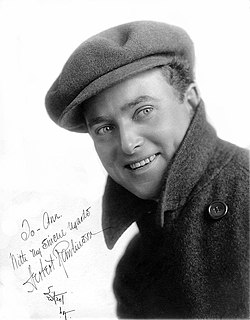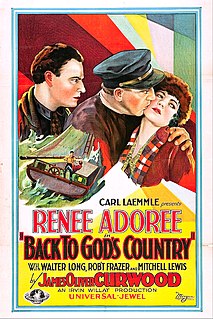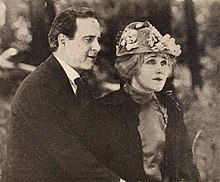
Maxwell was a brand of automobiles manufactured in the United States of America from about 1904 to 1925. The present-day successor to the Maxwell company is Fiat Chrysler Automobiles.

Nell Shipman was a Canadian actress, author, screenwriter, producer, director, animal rights activist and animal trainer.
Stirling Dale Silliphant was an American screenwriter and producer. He is best remembered for his screenplay for In the Heat of the Night, for which he won an Academy Award in 1967, and for creating the television series Naked City and Route 66. Other features as screenwriter include the Irwin Allen productions The Towering Inferno and The Poseidon Adventure.
A crucible is a heat-resistant container in which materials can be heated to very high temperatures.

Herbert Banemann Rawlinson was an English-born stage, film, radio, and television actor. A leading man during Hollywood's silent film era, Rawlinson transitioned to character roles after the advent of sound films.

Thomas B. Ricketts was a London-born American stage and film actor and director who was a pioneer in the film industry. He portrayed Ebenezer Scrooge in the first American film adaptation of A Christmas Carol (1908), and directed one of the first motion pictures ever made in Hollywood. After directing scores of silent films, including the first film to be released by Universal Pictures, Ricketts became a prominent character actor.

The Lawton Story of "The Prince of Peace", also known as The Lawton Story and The Prince of Peace, is a religious-themed film that later made the roadshow rounds presented by exploitation pioneer Kroger Babb. Shot in Cinecolor in 1948, based on an annual passion play created in Lawton, Oklahoma, it was presented in various forms through the years following its debut. The film also served as the debut film of child actress Ginger Prince, who was touted as her generation's Shirley Temple.

Back to God's Country is a 1919 Canadian drama film directed by David Hartford. It is one of the earliest Canadian feature films. The film starred and was co-written by Canadian actress Nell Shipman. With an estimated budget of over $67,000, it was the most successful silent film in Canadian history.

Alfred Paget was an English silent film actor best known for his portrayal of Prince Belshazzar in D.W. Griffith's 1916 historical epic Intolerance. He appeared in 239 films between 1908 and 1918. Prior to his film career, he had served from 1899 to 1903 in the Royal Horse Guards of the British Army. He served in South Africa during the Second Boer War from July to November 1900, receiving the Queen's South Africa Medal with clasps for Cape Colony, Orange Free State, and Transvaal. In April 1918 he travelled to Canada and enrolled in the Canadian Expeditionary Force, being assigned to the 34th Fort Garry Horse Depot Squadron in Winnipeg as an instructor, being quickly promoted to the rank of Sergeant due to his previous service and experience. In the summer of 1919, he contracted a form of malarial fever, and died in Winnipeg on 8 October 1919. He is buried in the Field Of Honour in Brookside Cemetery, Winnipeg.

Back to God's Country is a 1927 silent film Northwoods adventure based on James Oliver Curwood's story Wapi, the Walrus. The film was directed by Irvin Willat and stars Renée Adorée, usually an MGM actress. The film is a remake of the 1919 film Back to God's Country which starred Nell Shipman.

The Grub-Stake is a 1923 American action adventure film produced by and starring Nell Shipman. It was directed by Shipman's partner Bert Van Tuyle. It is considered an independent film.

God's Country and the Law is a 1921 American silent drama film produced by Pine Tree Pictures and distributed by Arrow Films. It was directed by Sidney Olcott with Fred C. Jones and Gladys Leslie in the leading roles. It was adapted from the 1915 novel God’s Country and the Woman by James Oliver Curwood, which had been previously filmed under that title in 1916.

The Unbeliever is a 1918 American silent propaganda film made towards the end of World War I. It was directed by Alan Crosland for the Edison Company towards its last days as a functioning film-making company. It stars Raymond McKee and Marguerite Courtot, who married a few years later, and Eric von Stroheim.

Lawful Larceny is a lost 1923 American silent drama film directed by Allan Dwan and written by John Lynch and Samuel Shipman. The film stars Hope Hampton, Conrad Nagel, Nita Naldi, Lew Cody, Russell Griffin, and Yvonne Hughes. The film was released on July 22, 1923, by Paramount Pictures.

Nina Shipman is a retired American film and television actress.

Ernest G. Shipman was Canada's most successful producer during the silent period. Shipman, whose nickname was "Ten Percent Ernie," made seven features from 1919 to 1923.
Faith Green was an American screenwriter active during Hollywood's silent era. She worked with directors like David Hartford, King Vidor, and Henry McRae.

God's Crucible is a lost 1917 silent film drama directed by Lynn Reynolds and starring Myrtle Gonzalez. It was produced by Bluebird Photoplays and released by Universal Film Manufacturing Company.
William "Billy" H. Clune was an American railroad property developer, film exchange and then theater chain owner, film studio owner, and film producer.
















